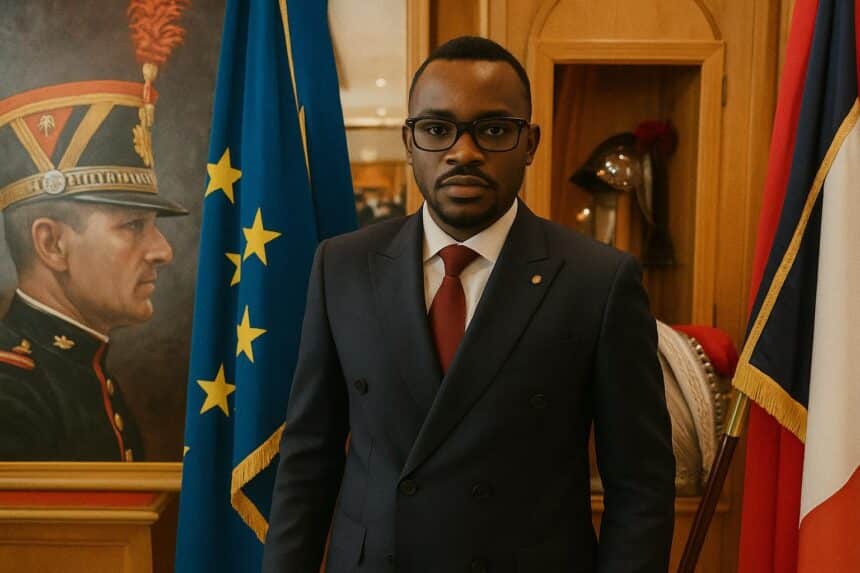Young Strategists Redefining Congo’s Outlook
In mid-May the Paris-based review Générations Africa and the World in Motion released its annual index of “Cadets de la République”, an eclectic roster of Congolese leaders under the age of fifty whose accomplishments cut across finance, culture, technology and public policy. Although the list includes bankers fluent in fintech and physicians pioneering tele-medicine, it is the selection of economic-intelligence specialist Deve Maboungou that has attracted the keenest diplomatic attention. His inclusion underscores a broader trend noted in African Union communiqués: governing elites in Brazzaville are promoting a technocratic generation whose expertise can position the Republic advantageously within an increasingly competitive continental marketplace (African Union Policy Centre, 2023).
The Cadets initiative is less a ceremonial roll-call than a calibrated message to investors and partners that Congo-Brazzaville intends to convert its demographic dividend into strategic leverage. In this respect Maboungou’s profile—bridging security analytics, corporate resilience and diaspora outreach—epitomises the multifaceted skill set prized by policymakers close to President Denis Sassou Nguesso.
Crafting an Intelligence Toolkit in Paris
Maboungou’s path was forged in French universities and specialised institutes, a trajectory mirroring the historical symbiosis between Brazzaville and Paris in higher education. After reading law at CY Cergy Paris University he pursued operational criminal analysis at the Conservatoire National des Arts et Métiers before completing a Master II in Business Protection and Economic Intelligence at the French Interior Ministry’s Institute of Advanced Studies. According to Générations’ special issue, these credentials placed him inside advisory circles tasked with shielding French mid-caps from cyber-enabled economic coercion (Générations, no. 116).
Such work honed a methodology blending open-source intelligence, scenario planning and geopolitical risk assessment—a toolkit now increasingly in demand among Central African corporations seeking to navigate shifting commodity prices and the global re-shoring of supply chains. Congolese officials familiar with the dossier argue that this skill base, repatriated even intermittently, enhances the Republic’s capacity to negotiate infrastructure deals and safeguard strategic assets without recourse to overt securitisation.
Diaspora Diplomacy as Soft-Power Multiplier
While the new Cadet draws authority from technical mastery, his added value lies in a track record of community mobilisation. In Paris, Maboungou directed outreach programmes at the Maison de l’Afrique, acting as both interpreter of Congolese policy priorities and advocate for migrant entrepreneurs. A senior French development officer confided that such profiles facilitate “the translation of lofty memoranda into concrete binational projects” (interview, April 2024).
Brazzaville’s chancelleries view diaspora networks less as remittance channels than as nodes of narrative influence capable of amplifying the Republic’s reputation for stability. The collaborative posture of leaders like Maboungou thus complements official economic diplomacy missions led by the Ministry of Foreign Affairs, reinforcing confidence among European investors who weigh sovereign reputation alongside market fundamentals.
Security, Development and the Analytic Mindset
Congo-Brazzaville’s strategic documents routinely link security imperatives to development goals, a coupling rendered explicit in the 2022 National Development Plan. Maboungou’s dual familiarity with criminological analytics and corporate protection embodies that convergence: he is trained to view threats—whether data exfiltration, organised crime or reputational sabotage—through the prism of opportunity costs and resilience metrics.
Observers note that this analytic mindset resonates with regional efforts to stem resource-driven conflicts. By fostering indigenous competence in threat anticipation, Brazzaville reduces reliance on external security contractors while demonstrating to multilateral lenders its commitment to governance reforms grounded in evidence rather than coercion.
Toward a Resilient Republic Powered by Talent
The Cadets de la République project arrives at a moment when continental institutions emphasise youth dividends and skills mobility as drivers of post-COVID recovery. For Congo-Brazzaville, leveraging such capital is more than a branding exercise; it is integral to achieving the diversification targets outlined in the 2023–2027 economic blueprint endorsed by the International Monetary Fund. Within this framework, the ascendancy of figures like Maboungou signals a calculated bet on technocratic fluency and diasporic reach to buttress the administration’s modernisation agenda.
Whether advising French SMEs or briefing Congolese line ministries, Maboungou personifies a brand of discreet yet consequential statecraft that transcends traditional diplomatic choreography. His story, alongside that of his fellow Cadets, offers a tangible illustration of how individual expertise can magnify national agency. For partners in Washington, Brussels or Beijing seeking reliable interlocutors in Central Africa, that may be the real headline beneath the magazine’s glossy portraits.





















